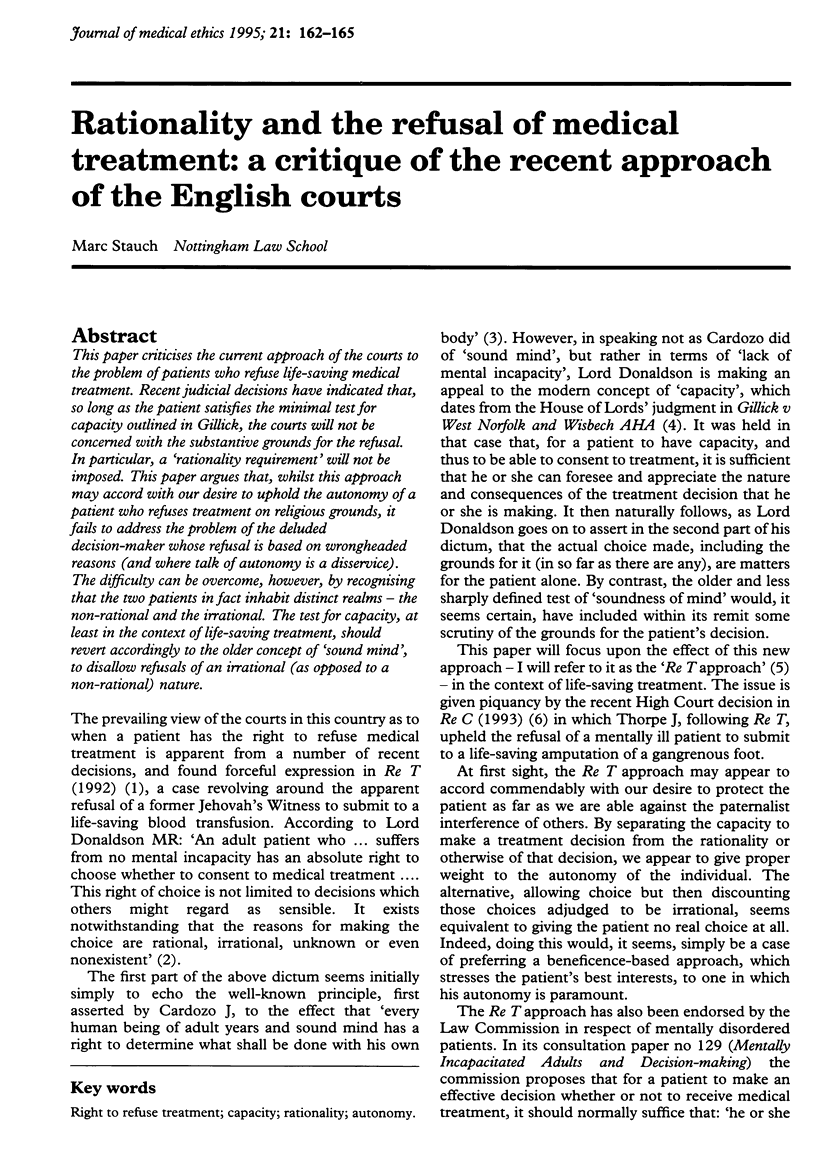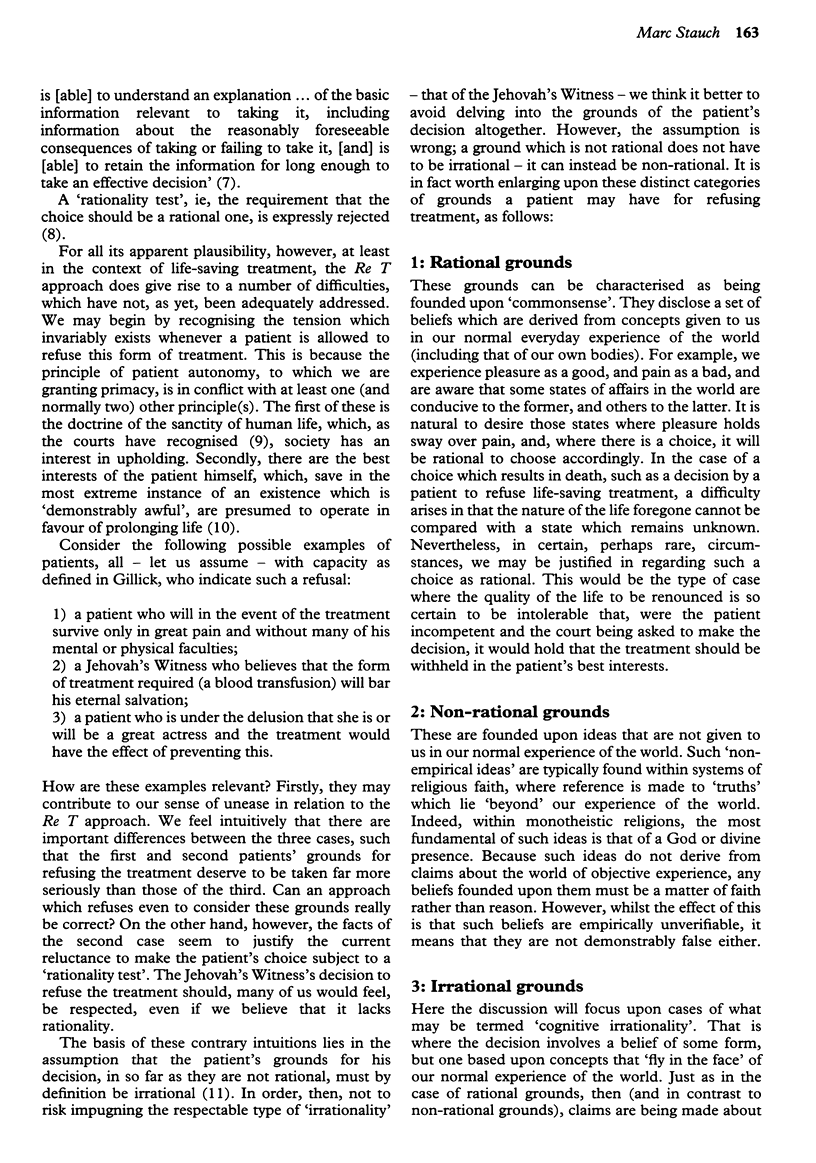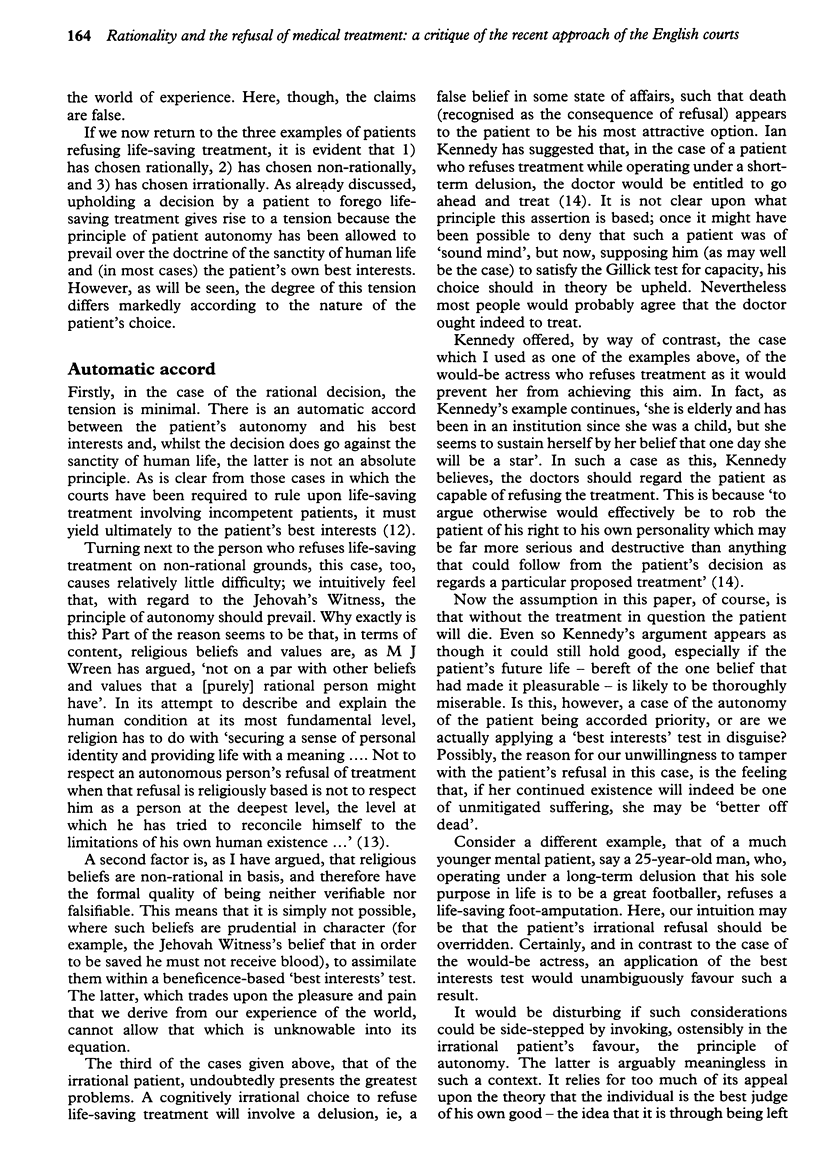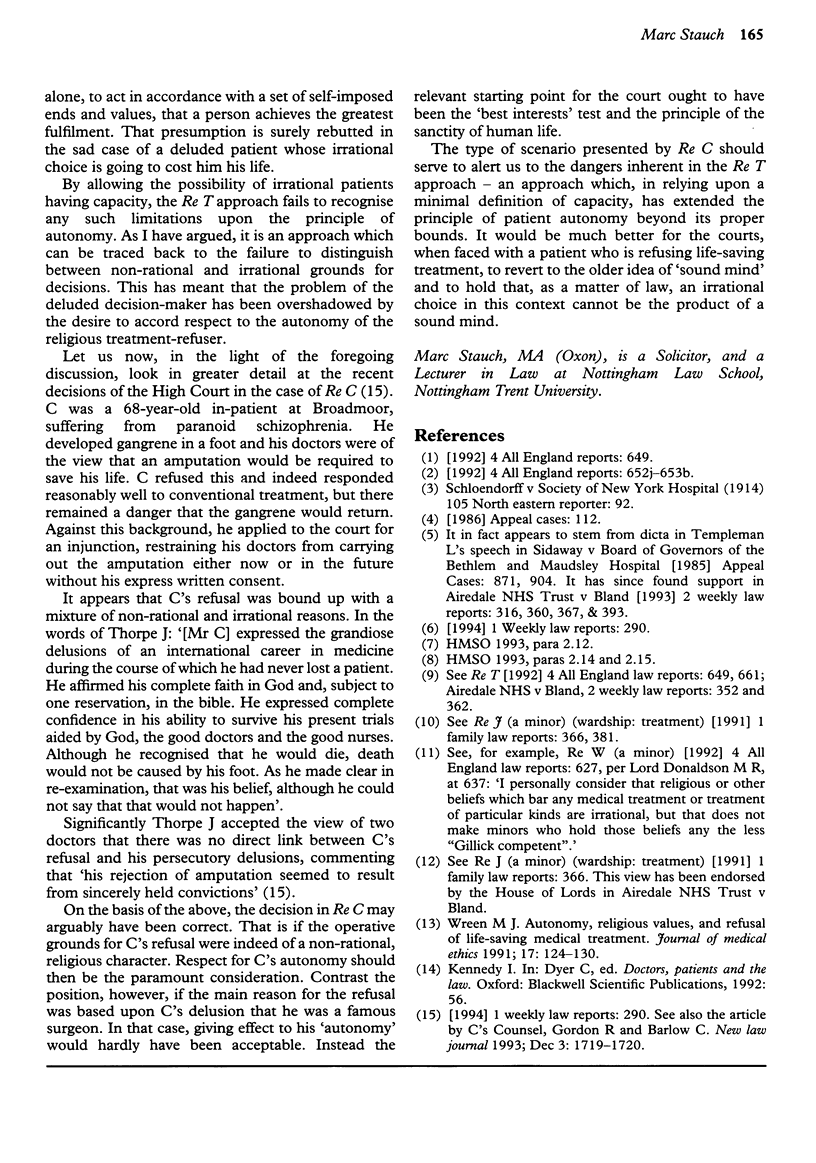Abstract
This paper criticises the current approach of the courts to the problem of patients who refuse life-saving medical treatment. Recent judicial decisions have indicated that, so long as the patient satisfies the minimal test for capacity outlined in Gillick, the courts will not be concerned with the substantive grounds for the refusal. In particular, a 'rationality requirement' will not be imposed. This paper argues that, whilst this approach may accord with our desire to uphold the autonomy of a patient who refuses treatment on religious grounds, it fails to address the problem of the deluded decision-maker whose refusal is based on wrongheaded reasons (and where talk of autonomy is a disservice). The difficulty can be overcome, however, by recognising that the two patients in fact inhabit at distinct realms-the non-rational and the irrational. The test for capacity, at least in the context of life-saving treatment, should revert accordingly to the older concept of 'sound mind', to disallow refusals of an irrational (as opposed to a non-rational) nature.
Full text
PDF



Selected References
These references are in PubMed. This may not be the complete list of references from this article.
- Gordon Richard, Barlow Craig. Competence and the right to die. New Law J. 1993 Dec 3;143(6627):1719–1720. [PubMed] [Google Scholar]
- Wreen M. J. Autonomy, religious values, and refusal of lifesaving medical treatment. J Med Ethics. 1991 Sep;17(3):124–130. doi: 10.1136/jme.17.3.124. [DOI] [PMC free article] [PubMed] [Google Scholar]


